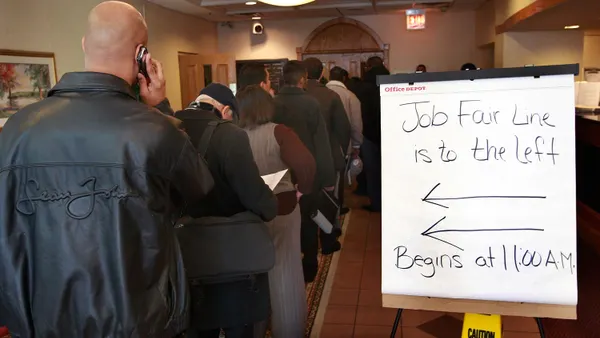Dive Brief:
- More employees may receive a cash bonus this year as employers scramble to keep talent on board, a Dec. 9 report from Grant Thornton revealed. Sixty-eight percent of HR leaders surveyed said they increased the number of employees eligible to get a cash bonus.
- More than half of those surveyed said they expected to grant average merit increases of more than 5%. However, a separate Grant Thornton report that surveyed employees noted that more than half of respondents would give up a 10-20% salary increase for better flexibility regarding where and when they work.
- "It's clear that employees value the flexibility they have had since the start of the pandemic," said Tim Glowa, principal at Grant Thornton. "However, not all companies will want or be able to offer 100% flexibility. If flexibility is not an option, it is critical to differentiate your value proposition in a meaningful way."
Dive Insight:
In an attempt to fill jobs, more employers have been turning to bonuses and increased wages to attract talent.
Some of those bonuses come in the form of sign-on and referral bonuses, a November WorldatWork survey noted. The sign-on bonus was the most common form used in recruiting, cited by 79% of those surveyed; only 7% said they used no forms of bonus in recruiting.
Others are offering retention bonuses as a form of appreciation for employees' work during the pandemic. Target, for example, paid its hourly workers $500 in January — the third round of such bonuses the company offered since the start of the pandemic.
But more broadly, signing bonuses may be replaced by higher base salaries, according to a Salary.com survey published in August. While half of employers in that survey said they were offering signing bonuses in 2021, only 20% said they would be doing so by the end of the year.
The bigger question at hand for employers may be the future of flexibility at work, as implied by the Grant Thornton survey. Employers and employees may still be at odds; 76% of employees surveyed by Future Forum said they did not want to return to the office full time, while 68% of executive respondents said they wanted to work in the office all or most of the time.











